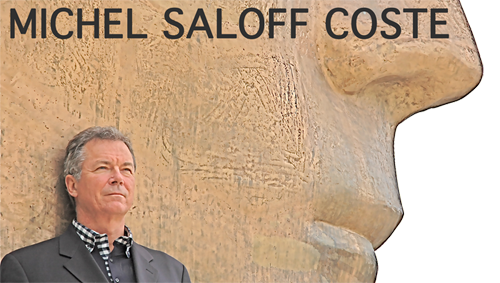President Obama Calls For Faster Action To Curb Arctic Warming And Climate Change
by Cathleen Kelly - Guest Contributor Sep 1, 2015 12:05pm
CREDIT: AP Photo/Andrew Harnik
ANCHORAGE, AK — President Obama arrived in Anchorage, Alaska Monday evening to start a three-day sojourn around the state dedicated to spotlighting the disruptive, and in some cases devastating, effects of climate change in Alaska and the Arctic. President Obama opened his visit with a forceful speechat a climate conference hosted by Secretary of State John Kerry for foreign ministers and other luminaries from 20 countries and the European Union, including members of the U.S. Congress, Native leaders, mayors, and experts.
Throughout his speech, the president repeated a cautionary refrain on global efforts to curb climate change: we are making progress but we are not moving fast enough.
The secretary convened the conference — Global Leadership in the Arctic: Cooperation, Innovation, Engagement and Resilience, or GLACIER — to shine a stark light on rapid warming-induced changes in the Arctic and strategies to curb them. This high-level climate change gathering was strategically scheduled just three months ahead of the U.N. climate negotiations in Paris this December, where world leaders are expected to lock in a new global climate agreement.
The near-Arctic venue selection for the conference was no accident. An avalanche of jarring news on climate change has tumbled from Alaska and the Arctic: shrinking sea ice, rising sea levels, higher and more damaging storm surges, thawing permafrost, imperiled communities, and raging wildfires.
At the conference, Secretary Kerry called climate change “a seismic challenge that is affecting millions of people today.” He described coastal Native Alaskan villages pummeled by more punishing weather as higher temperatures melt away protective sea ice and cause seas to rise. These changes, together with thawing permafrost accelerate erosion, and as a result, Secretary Kerry noted, that “houses and other buildings are literally collapsing into rubble.”
The secretary stressed the immediate need for nations to cut CO2 emissions and short-lived climate pollutants such as soot, or black carbon, and methane — both potent drivers of Arctic and global warming. Kerry urged leaders to use GLACIER as a “stepping stone” for Paris and beyond “to get the job done.”
During his powerful closing speech, President Obama described a worrying future for Alaska: temperature hikes of six to twelve degrees by the end of the century, which are expected to trigger “more melting, more fires, more thawing of the permafrost, a negative feedback loop, a cycle — warming leading to more warming — that we do not want to be a part of.”
The president pointed to the Environmental Protection Agency’s Clean Power Plan — which aims to cut carbon pollution from power plants by 32 percent from 2005 levels by 2030 — as, “the single most important step America has ever taken on climate change.”
Obama noted that, “America’s economy has grown more than 60 percent over the last 20 years, but our carbon emissions are roughly back to where they were 20 years ago. So we know how to use less dirty fuel and grow our economy at the same time.”
The president made clear that, “the time to heed the critics and the cynics and the deniers is past… Those who want to ignore the science, they are increasingly alone. They’re on their own shrinking island.”
The president warned that if we allow climate change to continue unchecked, “entire nations will find themselves under severe, severe problems. More drought; more floods; rising sea levels; greater migration; more refugees; more scarcity; more conflict.” He said that, “any leader willing to take a gamble on a future like that — any so-called leader who does not take this issue seriously or treats it like a joke — is not fit to lead.”
At the GLACIER meeting, the United States, with the seven other Arctic nations, 10 additional countries, and the European Union issued a joint statementreaffirming their “commitment to take urgent action to slow the pace of warming in the Arctic” and to achieve an ambitious agreement at the December climate negotiations in Paris. Also in the statement, foreign ministers emphasized the need for nations to cut black carbon, or soot, and methane emissions.
While these joint commitments do not go nearly far enough to curb Arctic and global warming, they are promising steps designed to jumpstart the U.N climate negotiations this fall and help to secure a strong global climate agreement in Paris.
President Obama issued a call to action at the close of GLACIER: “On this issue, of all issues, there is such a thing as being too late. That moment is almost upon us. That’s why we’re here today. That’s what we have to convey to our people — tomorrow, and the next day, and the day after that. And that’s what we have to do when we meet in Paris later this year.”
The planet’s future and a livable climate for its residents depend on world leaders hearing the president’s call.
Cathleen Kelly is a Senior Fellow at American Progress specializing in international and U.S. climate mitigation and resilience.

Aucun commentaire:
Enregistrer un commentaire